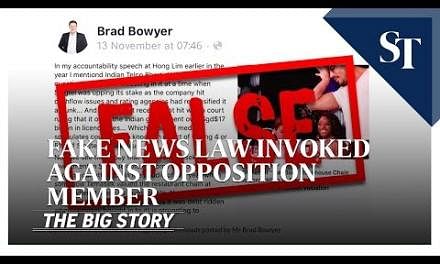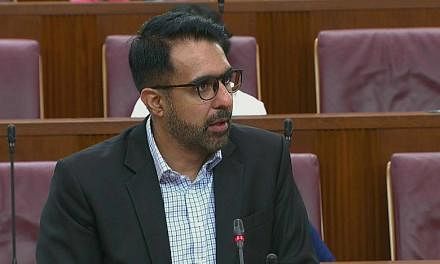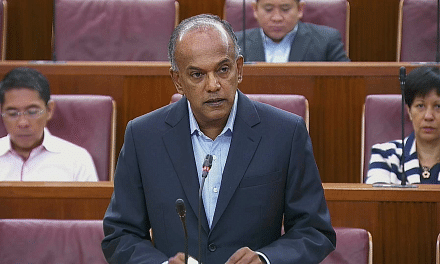SINGAPORE - Under the proposed fake news law, a minister, on the advice of civil servants, can decide if a false statement of fact has been made.
It could take as short a time as nine days for the High Court to hear a case after an individual challenges a minister's decision under this proposed law.
But what does the process look like? The Straits Times answers some questions about what happens when a minister decides content is fake news.
Q: Once a minister has decided that it is in the public interest to take action against an online falsehood, what does he do?
A: The minister will work with the competent authority within the Infocomm Media Development Authority to deal with the online falsehood.
In most cases, the minister will order a correction to be put up alongside the false content.
But, in more serious cases, he can ask for content to be taken down.
He can also order other remedies, such as for tech companies to block certain sites or accounts.
Q: When can a police investigation be triggered?
A: Such an investigation is triggered if there was malicious intent behind the fake news. Those found to have deliberately spread falsehoods against public interest can be charged in court.
If found guilty, they can be fined, jailed, or both.
Q: What if someone feels unfairly treated by the proposed law?
A: They can appeal to the minister, or seek redress through the courts. A standard form will be provided online to file an appeal, which will be sent via e-mail.
The relevant minister must make a decision no later than two days after the form is received.
Q: What happens after the minister decides on the application to cancel the direction?
A: The person will have to file an appeal to the court no later than 14 days after the minister has made his decision. Simple standard forms that they can fill in and file in court will be provided.
The court will then be asked to fix the hearing within six days, if the person attends before the duty registrar to request an expedited hearing.
Q: How long after that will the minister have to respond?
A: The documents will need to be served on the minister no later than the next day. To make things easier, an e-mail address will be provided to the person who is appealing.
The minister must then file his reply in court no later than three days after the documents are served as prescribed.
Q: In summary, how soon can someone have their case heard in the court after challenging the minister?
A: As early as nine working days after initiating their challenge to the minister. Judicial review is also available, in which the court can look at whether the Government's decision has gone against other laws.














